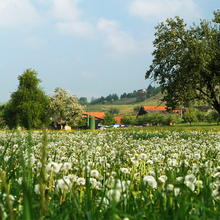Mitarbeitende
Benjamin Hofmann


About Me
Seit August 2025 bin ich Gruppenleiter am TdLab der ETH Zürich und akademischer Gast an der Eawag (Gruppe Inter- und Transdisziplinäre Forschung). Mein Studium an der Universität Salzburg in Österreich (2006–2012) und der Universität Aarhus in Dänemark (Gaststudent, 2009) schloss ich mit einem BA- und MA-Abschluss in Politikwissenschaft ab. Als Referent bei der Zentralkommission für die Rheinschifffahrt ZKR, der ältesten internationalen Organisation mit Sitz in Strassburg, Frankreich, sammelte ich Erfahrungen im Bereich nachhaltige Verkehrspolitik auf europäischer Ebene (2012–2015). In der Schweiz promovierte ich anschliessend in Internationalen Beziehungen und Politischer Ökonomie an der Universität St.Gallen (2015–2020). Im Rahmen meiner Dissertation, die sich mit der Umweltregulierung maritimer Industrien befasste, war ich Beobachter der Schweizer Delegation in der Internationalen Seeschifffahrtsorganisation IMO (2017-19). Parallel dazu arbeitete ich an der Universität St.Gallen als Forschungsassistent im Bereich Energiepolitik (2015–2021) und absolvierte einen CAS in Hochschuldidaktik (2016-18). Danach kam ich an die Eawag, dem Wasserforschungsinstitut des ETH-Bereichs, zunächst als Postdoktorand (2021–2024) und später als Wissenschaftler (2024–2025) in der Gruppe Inter- und Transdisziplinäre Forschung. In dieser Zeit war ich auch Dozent an der Universität St.Gallen (2021-25) sowie Gastwissenschaftler am University Centre of the Westfjords in Island (Grimsson-Stipendium, 2024) und an der Universität Oulu in Finnland (ROAM-Stipendium, 2025). Ich war and bin Mitglied verschiedener akademischer Netzwerke, darunter die Postdoc Academy for Transformational Leadership der Robert Bosch Stiftung (2021–23), das Earth System Governance Project (seit 2021), die tdAcademy (2023–24) und die Junge Akademie Schweiz (2023–28).
Meine Forschung untersucht die Rolle von Wissen in der Governance menschgemachter Umweltveränderungen. Sie analysiert, wie wissenschaftliche Evidenz und andere Arten von Wissen (z.B. Erfahrungswissen, lokales Wissen und technische Expertise) Entscheidungen in Politik und Praxis beeinflussen. Meine Forschung zielt darauf ab, die Theoriebildung zu den Beziehungen zwischen Wissenschaft und gesellschaftlichen Stakeholdern und den damit verbundenen Rollen von Forschenden voranzutreiben. Sie nutzt qualitative sozialwissenschaftliche Methoden und wendet transdisziplinäre Methoden an, reflektiert diese und entwickelt sie weiter, um eine wirkungsvolle Koproduktion von Wissen durch Forschende und Stakeholder zu erreichen. Verankert in politischer Theorie widme ich dabei der Rolle von Machtverhältnissen zwischen Akteuren in transdisziplinären Kontexten besondere Aufmerksamkeit. Empirisch habe ich mich in der Vergangenheit mit verschiedenen Umweltthemen befasst, darunter Meerespolitik, Energie und Pestizide in der Landwirtschaft. Ich leitete die inter- und transdisziplinäre Wissensintegration im Projekt «Transformation der Pestizid-Governance» (Trapego, 2021-25, finanziert vom SNF). Gegenwärtig leite ich das Forschungsprojekt «Transformation der Beziehungen von Wissenschaft und Gesellschaft im Anthropozän» (Anthro:Relate, 2025-26, finanziert vom SNF). Meine zukünftige Forschung wird sich empirisch auf die Schnittstelle zwischen Anpassung an den Klimawandel, Erhaltung der biologischen Vielfalt und menschlichem Wohlergehen konzentrieren.
Meine Publikationen sind auf Google Scholar und ORCID (inkl. Blogposts) verfügbar und meine Gutachtertätigkeit ist im Web of Science einsehbar. Weitere Informationen zu mir und meiner Forschung finden Sie auf der Webseite der ETH Zürich.
[[ element.title ]]
Projects
[[ element.title ]]
[[ element.title ]]
Publications
[[item.title]]
[[ element.title ]]
[[ element.title ]]
Address
| E-Mail: | benjamin.hofmann@cluttereawag.ch |
| Phone: | +41 58 765 5948 |
| Fax: | +41 58 765 5802 |
| Address: | Eawag
Überlandstrasse 133 8600 Dübendorf |
| Office: | FC F20 |
[[ element.title ]]
[[ element.title ]]
[[ element.title ]]
Research Group
[[ element.title ]]
Research Focus
Wissenschaft & Gesellschaft
Umwelt & Nachhaltigkeit
Inter- und Transdisziplinarität


